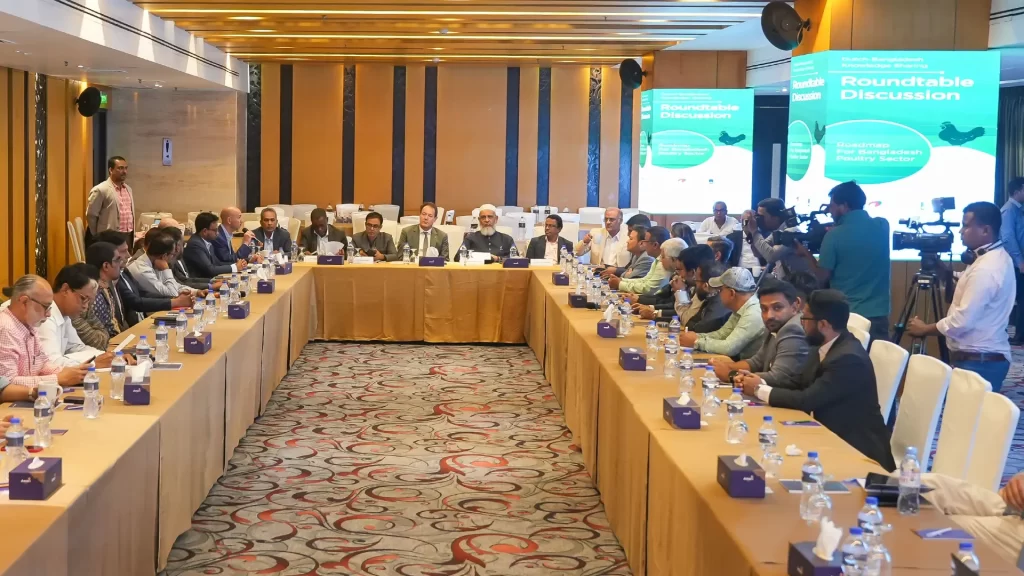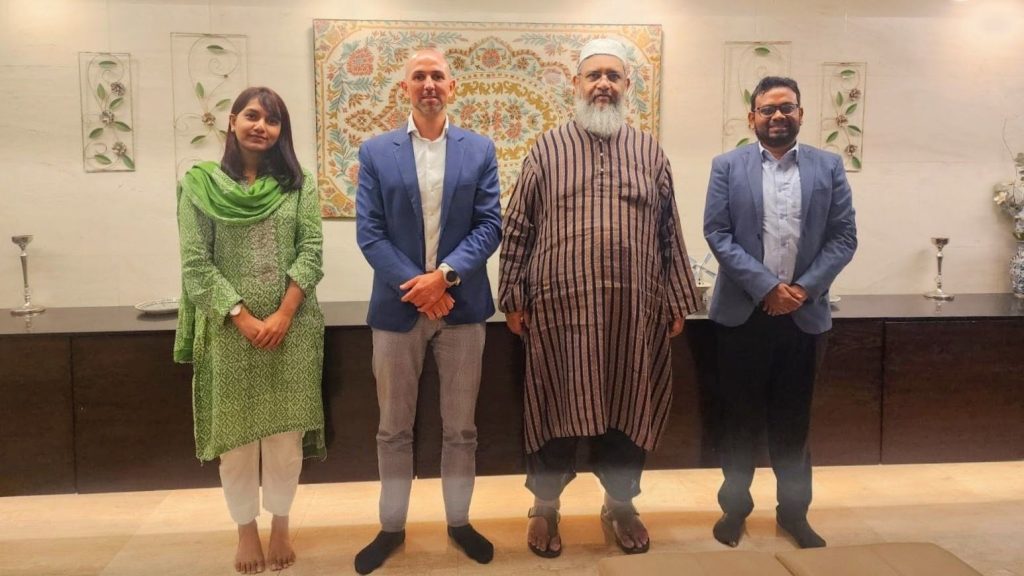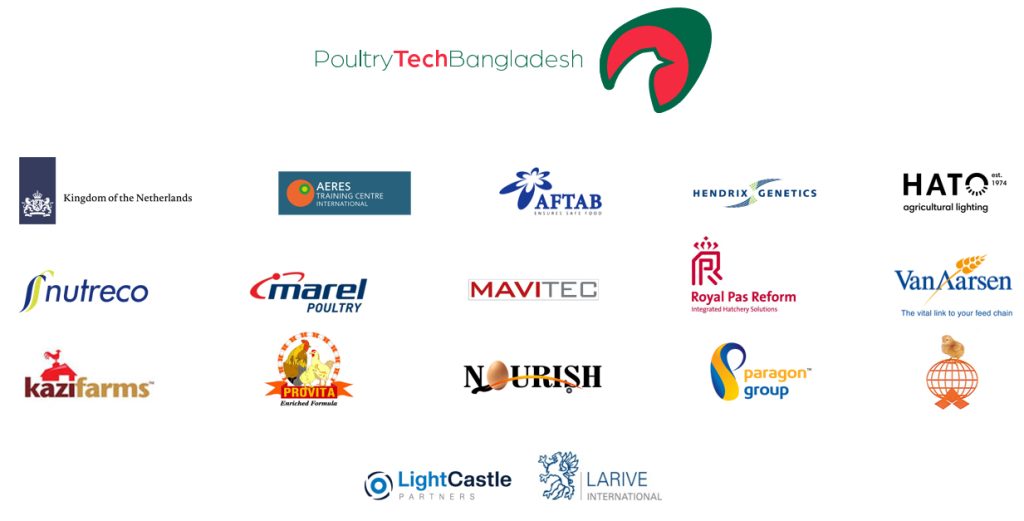With 173 MN inhabitants and an average annual GDP growth rate of >8% during the past decade, Bangladesh has been one the fastest-growing economies in the world offering substantial opportunities for Dutch companies looking to gain a competitive edge and establish themselves as global market leaders. However, doing business in Bangladesh can be challenging. Over the past three years (2021 – 2024), Larive has supported nine Dutch companies with business development in Bangladesh whilst simultaneously facilitating local sector development.
Dutch businesses seeking to enter the Bangladeshi poultry sector can encounter significant hurdles arising from cultural, regulatory, and operational differences. One of the key difficulties is navigating the bureaucratic complexities in Bangladesh, where regulatory processes including importing equipment, feed, genetics, or veterinary products are often complex. Furthermore, the local business culture strongly emphasises personal relationships and informal networks, which must be established over the long term and can be unfamiliar to Dutch companies that are accustomed to a more structured, rule-based business environment. Adjusting to these differences is crucial for success in any Bangladeshi market.
To support Dutch companies in doing business in Bangladesh, whilst simultaneously stimulating the development of the poultry sector, Larive International and LightCastle Partners have been engaged as partners to coordinate and manage the multi-annual project titled PoultryTechBangladesh, which includes 14 companies and is funded by the Government of the Netherlands.
During the project, Larive facilitated the Dutch companies to navigate effectively through the Bangladeshi market, expand their networks, and set up demonstration farms and product trials to showcase the effectiveness of their products and services. Simultaneously, train-the-trainer programmes and workshops are being organised to stimulate increased productivity and adoption of innovative and sustainable practices with key stakeholders throughout the poultry value chain. As a result, the project has turned current challenges into business opportunities for Dutch companies and has generated a snowball effect on the poultry sector and the growth of the value chain.

The following bullets list the accumulated effects PoultryTechBangladesh has had to date:
- 9 Dutch companies and 26 Bangladeshi companies were supported with their investment plans, trade activities and services.
- The first rendering demonstration facility with high-tech Dutch equipment has been established.
- 500 Bangladeshi companies use Dutch equipment or expertise.
- 2400 Local jobs were supported.
- 1600 Smallholder farmers were trained in sustainable agriculture production.
- 300 Young farmers (aged under 35) were trained.
- 5000 Stakeholders in the Bangladeshi poultry sector were reached.
One of the key results is the demonstration Sasso farm established at Nourish Poultry in Tangail. This facility showcases best practices in farmhouse design, conducts trials with Hendrix Genetics’ SASSO breeds, and serves as a training centre for Nourish Poultry staff, selected contract farmers, and third-party stakeholders, providing technical assistance to enhance sector performance.
The Netherlands is internationally renowned for the competent production of poultry products, innovation, and creating added value. Dutch policies and processes regarding food quality, product safety, and hygiene are considered the highest international standards.
Moreover, collaborative efforts within the consortium have strengthened member networks. Van Aarsen has successfully launched its new feed mill, with a production capacity of 111 tons per hour (tph), including 40 MT of cattle feed, 50 MT of poultry feed, and 21 MT of sinking and floating aqua feed.
In line with the commitment to advancing the poultry sector, PoultryTechBangladesh has recently expanded its partnership by welcoming Quick Chicks, Provita, Paragon, and Nourish. These new partners will contribute to investment facilitation, offer technical support, and enhance co-financing opportunities for the industry.
When looking at the months ahead, the consortium will continue to drive key activities, including biosecurity and food safety training programs, youth-focused initiatives, workshops, impact tours, and policy development aimed at promoting sustainable growth.
In case you would like to know more about doing business in Bangladesh, the poultry industry in emerging markets, or tackling business challenges through a partnership, reach out to us through our contact page or contact Amber van Spronsen.





